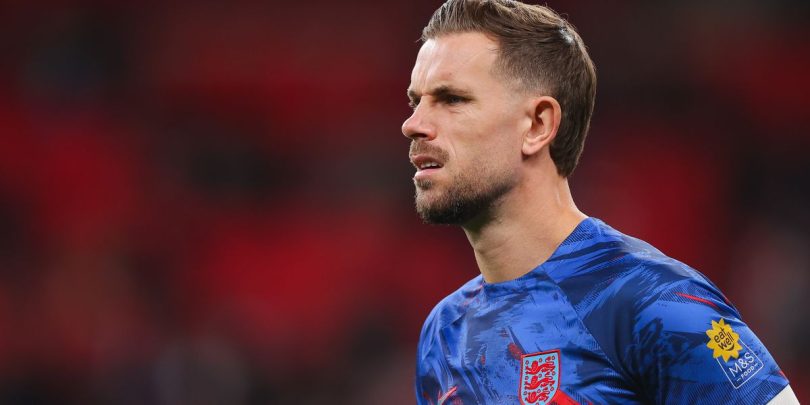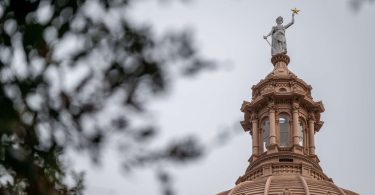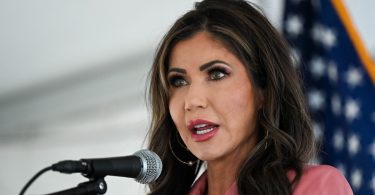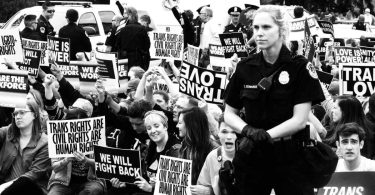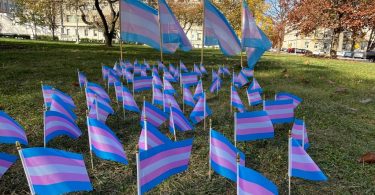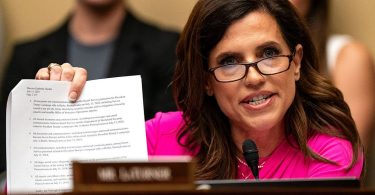In the days immediately after Jordan Henderson’s great Arabian adventure began, when his reputation as arguably the strongest LGBTQ ally in men’s soccer had already been swept away in a sandstorm of criticism, a gesture of good grace stood out to me.
There wasn’t much cordiality coming Henderson’s way at the time and there’s even less of it today, with the England international having hot-footed it back to Europe after just six months.
He has signed for Dutch giants Ajax and staggeringly, tax issues mean he may not even get paid for the six months he has spent in the Saudi Pro League.
Last July, however, Henderson was shown a generosity of spirit by someone who had more reason than most to feel let down.
Keith Spooner is a gay Liverpool fan from Dublin whose tweet thanking his then club captain became a pivotal part of the player’s allyship story, several years previously.
“You’ll never walk alone Keith,” replied Henderson to the Reds supporter, in December 2020. “If wearing the #RainbowLaces armband helps even just one person, then it’s progress.”
For the midfielder’s career to later take such an unexpected direction came as a shock to Spooner and other LGBTQ fans.
So much for solidarity, they must have thought. Since at least June 2022, the Saudi authorities were known to have been seizing items with rainbows on them, even claiming they sent out a “poisoned message” to young people.
But despite that — and as soon as he felt unwanted at Anfield — Henderson moved swiftly to become the marquee signing at Al Ettifaq, a mid-table club in a country where being gay can certainly land you in jail and might even get you killed.
At the very least, it’s a land in which the vast majority of LGBTQ people must feel incredibly isolated. There was no further mention of “you’ll never walk alone” as Henderson stayed silent on human rights.
On the day the deal was announced, BBC Sport asked Spooner what he made of it all. The fan was far more generous than many in his position would have been.
“On a personal level, I can understand there’s financial reasons, there’s personal reasons, there’s game time,” he said.
“But I do think as an advocate or an ally of people who are LGBT, whether it’s in sport or life, there are knock-ons and repercussions from your actions and his decision to go over to Saudi Arabia and play there has definitely tarnished a bit of his reputation for me.”
That same day, Henderson’s new employers managed to besmirch his character even more when they greyed out a rainbow armband in an image used in an announcement video posted on social media.
After a decent start, the team’s performances stagnated. It has won just one of its last 13 games in all competitions, with home attendances low in the city of Dammam.
It is understood that Henderson and his family struggled to settle, despite choosing to live in nearby Bahrain which is said to offer a more relaxed feel for Westerners.
The fallout from his move spilled into the England camp, casting doubt on his place in the national team squad for this summer’s European Championships.
Then in early January, he made it known through the media that he wanted out of Saudi. On Thursday came confirmation that he has joined Ajax on a deal until summer 2027.
The chain of events was predictable — but there will be an ongoing ripple effect for LGBTQ people too.
The initial concern should be for those living in Saudi, in case some sort of backlash ends up impacting them.
US-based activist Dr Nas Mohamed told Outsports last October that the situation had “gotten worse” for LGBTQ Qataris like him back in his homeland after the World Cup, when so much scrutiny was put on human rights. “They really doubled down, on all forms of crackdowns,” said Mohamed.
The Henderson situation, however, appears to have had less of a chain reaction in neighboring Saudi Arabia. There is no evidence that he made even the simplest gesture of advocacy from within the country, seeming to think his mere presence was enough.
In the interviews he gave while back in England — such as to The Athletic and broadcaster Channel 4 — he stressed his willingness to “respect” the culture of the host nation and its people above all else.
“Having someone like myself with the values that I have in Saudi Arabia is only a good thing,” he told Channel 4 reporter Kelly Somers, who quickly interjected: “What do you mean by that?”
Henderson replied: “Before I went to Saudi, people knew the groups that I’d supported and helped in the past. And not once has it ever been mentioned… it’s never been an issue at all.
“They know what my values are, they’ve accepted this, and all they ask in return is for me to respect their values, religion and culture as well, which I’ve done.”
Not only did he swerve talk of rainbows or anything else that could be seen as even slightly controversial in the ultra-conservative kingdom, but he also actively promoted Saudi Arabia’s 2034 World Cup plan.
Three LGBTQ activists who are from Saudi but who now live in the US and the UK spoke to the i paper last month and said Henderson would have zero impact, however long he stayed in the country.
As one put it: “We don’t want a saviour — we want our rights back.”
To me, that sounds like a rallying cry, one those of us here in the West are well-placed to amplify.
Certainly, by now, we should be past the stage where relatively basic demonstrations of allyship become highly venerated.
But with barely any out gay or bi role models in men’s soccer anywhere in the world, that is what happens in this sport and in many others. We end up pinning our hopes on a handful of allies to change the game.
There might be less of them in the future, anyway. For star athletes, the wind is blowing the way of Saudi Arabia and Qatar — stay neutral on human rights, and your chances of landing a colossal payday in the Gulf while avoiding heavy criticism are unaffected.
Ultimately, for a gay fan in Riyadh, a display of Pride in a soccer game remains a pipe dream.
But as Spooner put it, there are still “knock-ons and repercussions” from the Henderson affair.
Nudging a few more LGBTQ people in football into action, inspiring them to help even just one person by providing that representation we all know is out there, letting them know that they don’t walk alone… now that really would be progress.

